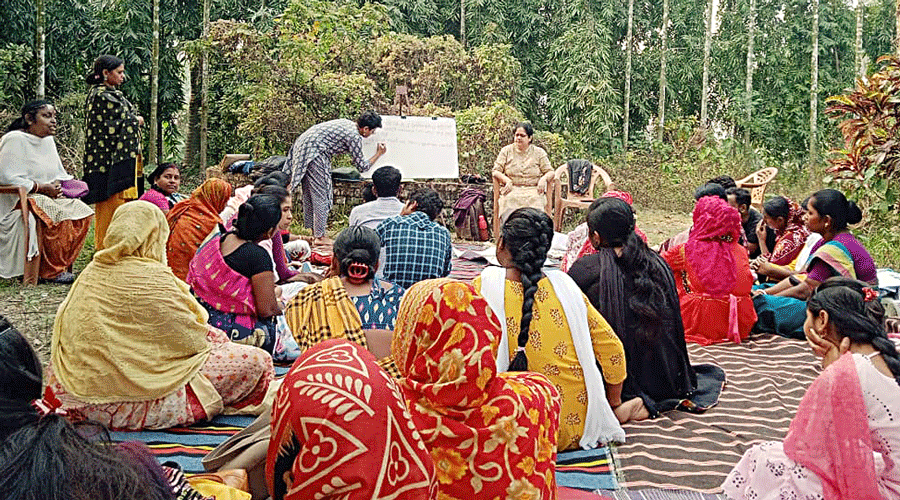⚫ A woman in her 30s faced physical assault from her husband. But that was not it. She faced the same ordeal even in her parental home
⚫ A young man in his 20s faced opposition in his locality when he tried to stop a child from getting married
Women and men shared their experiences, stories and opinions on child marriage, exploitation of women and how men who dare to challenge patriarchy face opposition at a creative writing workshop held in the first week of January.
The workshop was an initiative of a feminist organisation called Swayam that is giving women in their urban and rural communities a space to express their opinions, which, in turn, will create awareness.
Swayam has been working to end discrimination and violence against women for the last 25 years.
In the last few years, they have included boys and men, too, in their fight against violence against women.
Some of the women said writing helps them vent what they keep bottled up inside.
“When my husband used to beat me up, my mother took a stand and helped me move out of his home. But I did not realise that she and my brothers would turn against me,” said the woman.
After a while, they, too, started beating her up. “Who would I share this with? Writing gives you that space,” she said.
Another woman said that it was only when she started earning a living as a tailor that she was able to stop people at her paternal home from assaulting her.
“I wrote why child marriage should not happen and why girls should not be married before being financially independent. It was only when I started earning that I could take a stand,” she said.
Some of these women write under pseudonyms and their work gets published in the magazine that Swayam brings out thrice a year.
Some who cannot write send voice recordings that are transcribed and printed.
“The creative writing workshops and subsequent publication gives women a voice. It is empowering for them to see their work published. It is a unique way of creating awareness in the communities that they live in,” said Swayam director Amrita Dasgupta.
She said when others in the community see people they know writing, it generates an interest in them to know more about the issues and the work that is done by the organisation.
“When more people read, it helps raise awareness,” said a member of the organisation.
Men, too, have expressed their eagerness to write. Some of them have written about the on-ground challenges that they faced while working to end discrimination.
A law student, Moshibur Rahman, said when they, as boys, try to stop any underage marriage, they are targeted.
“It is our parents, too, who face the brunt of it in the neighbourhood,” he said.
Rahman said in an underage marriage, there are boys, too, who are under pressure from their families.
“The boy is supposed to take responsibility of his wife and start earning. It creates pressure on him, too,” he said.
